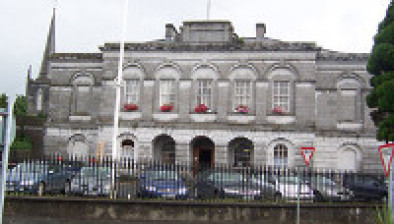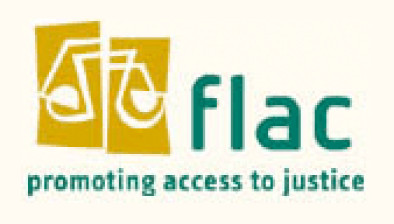Criminal barristers in Northern Ireland to strike over legal aid rates

Pictured: Donal Lunny KC, chair of the Bar of Northern Ireland.
Criminal barristers in Northern Ireland are to stage a one-day strike and begin to refuse serious cases in pursuit of an increase in legal aid fees.
Following a ballot earlier this month, the Criminal Bar Association (CBA), which represents criminal barristers within the Bar of Northern Ireland, will hold a full-scale day of action on Monday 4 November, during which members will refuse to participate in any work related to criminal cases across the jurisdiction.
In addition, from Friday 1 November, barristers will refuse instructions in all ‘Category A’ Crown Court cases, which include offences of murder and manslaughter, which are returned from that date, as well as refusing instructions in any retrials in respect of all cases which follow on from hung juries or appeals.
Donal Lunny KC, chair of the Bar of Northern Ireland, said: “Criminal barristers are dedicated and committed professionals, and they apply their legal knowledge to matters that are serious, complex, and traumatic, providing access to justice and ensuring a fair balance between the prosecution and the accused during criminal proceedings.
“Criminal barristers in our Crown Courts work for legal aid rates which have, when adjusted for inflation, plummeted between 47 per cent and 58 per cent since 2005. Routinely, these barristers will wait at least three to four months for payment once a case is concluded and their fee is submitted.
“Long hours, increasingly complex cases, unfair remuneration, and payment delays have coalesced to make legally aided criminal work an unviable practice area for an increasing number of legal professionals, particularly younger barristers.”
Judge Tom Burgess recently carried out a fundamental review of criminal legal aid which was presented to the justice minister, Naomi Long, in August. However, neither his report nor recommendations have yet been published.
Mr Lunny said: “The Bar engaged extensively and constructively with the Burgess review. It is a source of deep frustration and disappointment that the Department has not demonstrated the necessary urgency in response to the Burgess review findings and recommendations.
“The Department has even refused to take the simple and logical step of publishing the Burgess review to those who participated in it.
“This demonstrates a disconcerting lack of openness and reflects a failure to take a collaborative approach with legal professionals and other stakeholders across the criminal justice system.”
He added: “The Criminal Bar Association has not taken the decision to withdraw services lightly. Indeed, it is an option of last resort and comes after an extended period of patient forbearance with a system that is no longer sustainable or fit for purpose.
“Despite their efforts and goodwill, the Criminal Bar Association have had their hand forced by DoJ inaction and complacency. This planned action is a regrettable but necessary measure to protect criminal legal aid as a vital public service.”
The CBA is seeking the immediate publication of the Burgess report; a “fair and reasonable” increase in fees, to be applied on an interim basis, without further delay; and the DoJ to agree a “firm and comprehensive timetable” for the implementation of the “necessary and substantive reforms to the criminal legal aid system” which the Bar set out in its submission to the Burgess review.
Mr Lunny concluded: “The Bar of NI remains willing to engage fully with the Department of Justice. The planned withdrawal of services can be avoided if the Department of Justice, even at this late stage, is willing to act with the urgency and transparency that have been absent to date.
“But the Department should be in no doubt: the Bar is steadfast in its resolve to ensure that the system of criminal legal aid, which is an essential element of a fair and effective justice system, is returned to a state where it is fit for purpose.”
In a statement, the Department of Justice said it was “surprised and disappointed that the Criminal Bar Association intends to take industrial action”.
It said it was considering the recommendations of the Burgess review and a ministerial statement is to take place “in the coming weeks”.
“It is well-known the Department of Justice has been consistently underfunded and the fallout from such underfunding is now being realised,” it added.
“The Bar is aware that the Department has been working to secure a more sustainable budget and additional funding has been secured this year to meet the current pressures.
“It should be noted that pressures were at an all-time high in 2023/24 when the Legal Services Agency paid out circa £114 million to legal professionals, the highest level of payment in the history of legal aid.
“The Department will continue to push hard for more funding to address the underfunding issues across justice. It is therefore premature to announce strike action at this time.”
Northern Ireland criminal barristers previously took part in a one-day strike in November 2023, which led to a £11 million boost to the legal aid budget. This action, which took place when no minister for justice was in post, was largely sparked by long delays in payments rather than fee levels.
South of the border, criminal barristers withdrew services over three days this summer, following a day of strike action in October 2023. These actions led to a 10 per cent increase in legal aid fees last year and a further eight per cent increase this year, though the Bar of Ireland says cumulative pay cuts have not yet been fully reversed.







